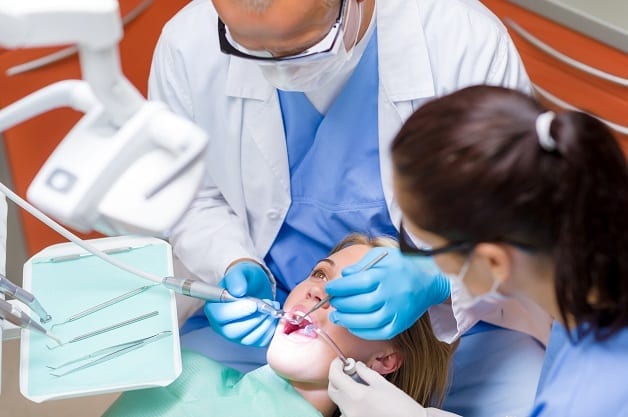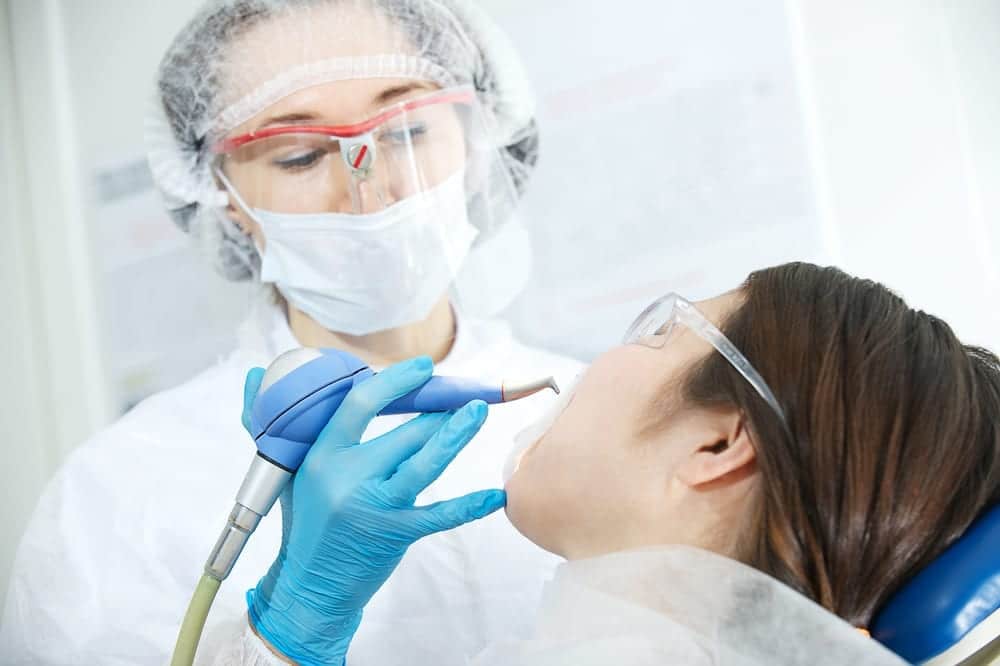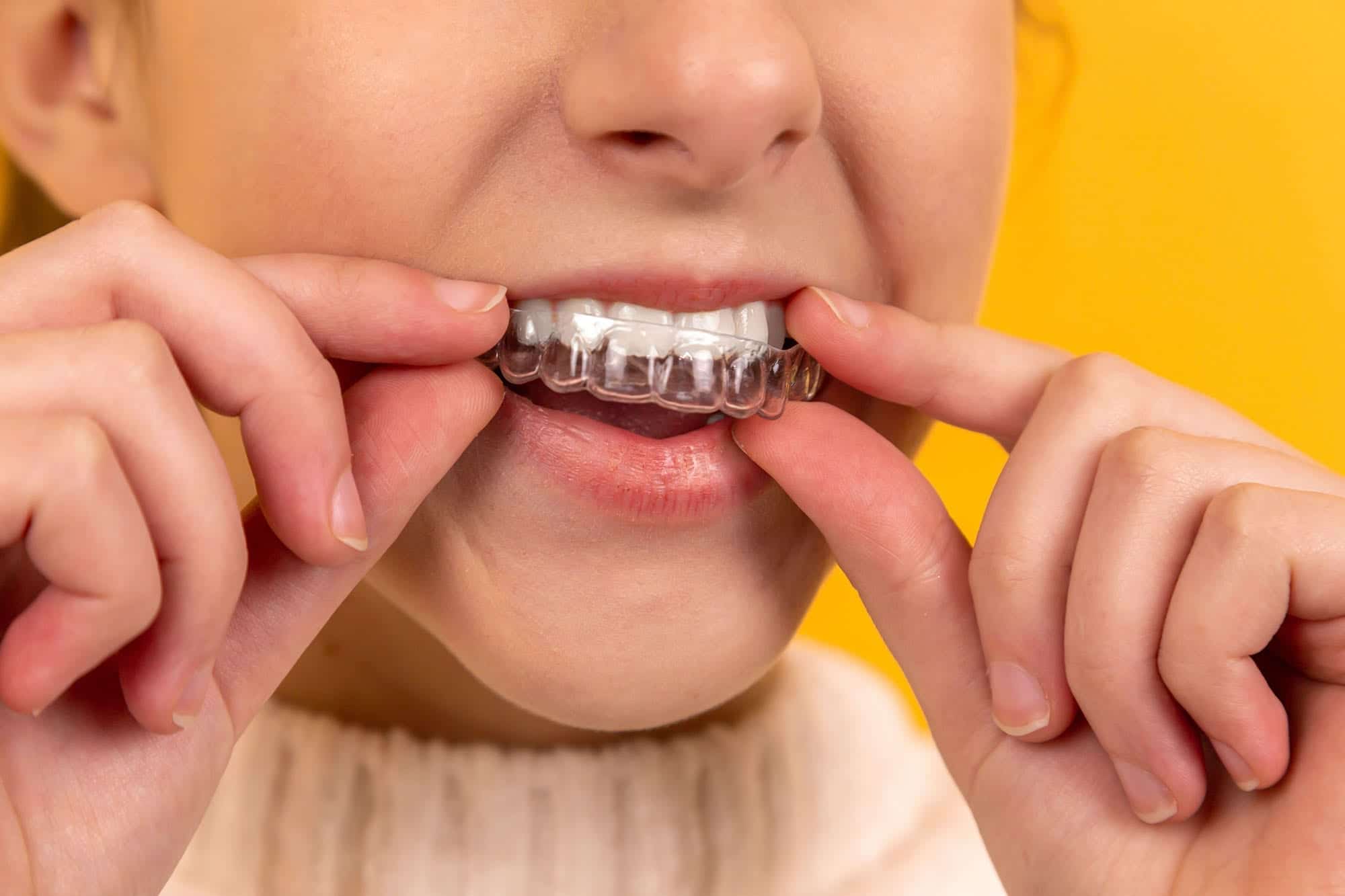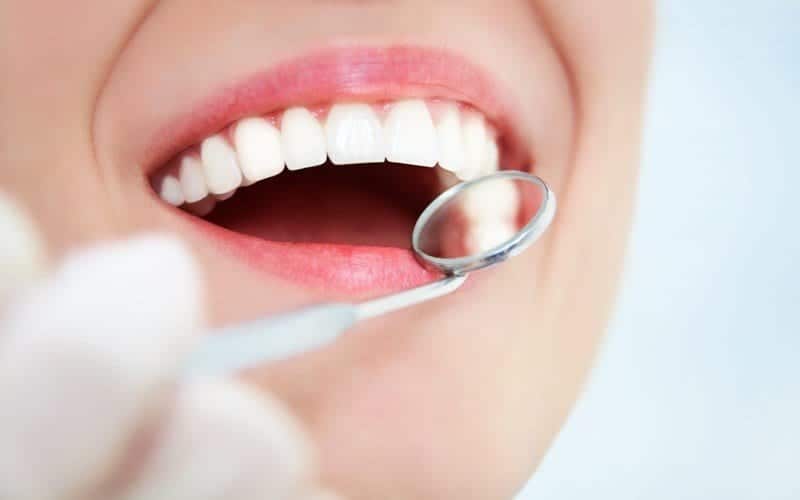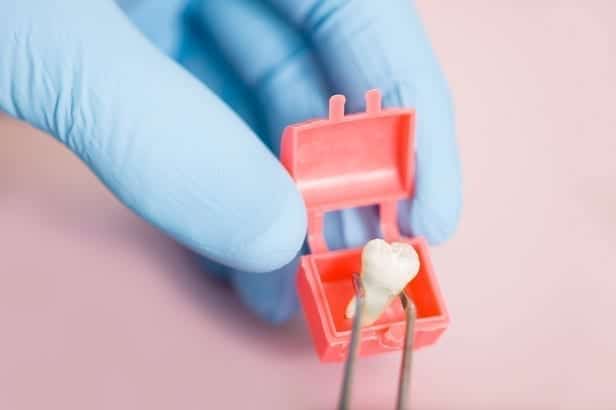When it comes to the development and growth of children, loose baby teeth are a normal part of both. However, if you’re an adult and you’ve somehow ended up with loose permanent teeth, then it’s something you should consult your dentist about. If you’re unable to address the problem ASAP, your tooth might eventually fall out altogether. Unfortunately, unlike with milk teeth, your body doesn’t make an automatic replacement for your permanent teeth.
Page Contents
Should You Be Worried?
Having children with loose milk teeth is typical. Looseness of permanent teeth in adults is atypical and a cause for concern. This is because they have permanent teeth and those teeth cannot be replaced naturally. When a permanent tooth loses ligament and bone support, it will slowly but surely detach from the bone and gums unless you do something about what caused it to get loose in the first place.
Teeth that are loose tend to do so with the slightest of touching. It gets worse as you chew and eat as well, since this can further loosen them up. If you’re suffering from other symptoms aside from loose teeth then that’s indicative of an underlying disease. Talk to your dentist for more details and assistance. Understanding what caused your teeth to get loose can assist your doctor in determining which treatment is most appropriate for you.
Causes of Loose Tooth in Adults
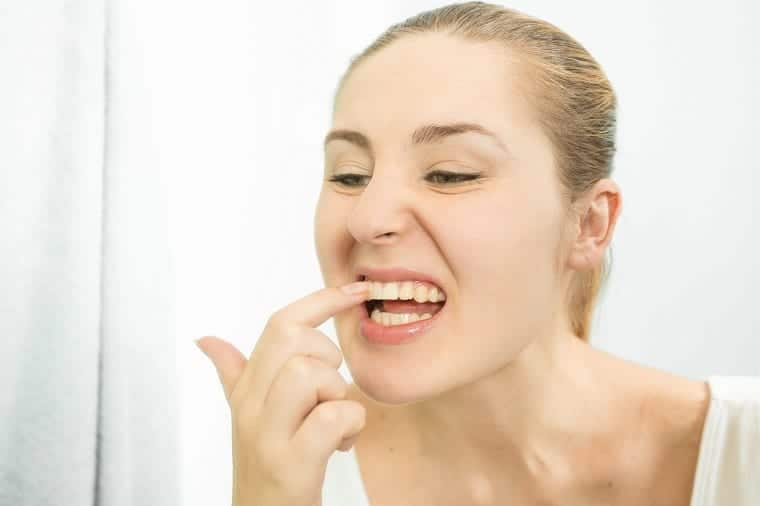
The phenomenon of adults getting loose teeth is caused by a multitude of reasons. While some reasons are harmless and can ultimately be reversed by renewed vigor when it comes to brushing your teeth, gargling mouthwash, and flossing regularly, there are certain tooth-loosening diseases or conditions that require dentist intervention in order to save the tooth or teeth.
Otherwise, you’ll have to get that tooth extracted and replaced with either a bridge or a dental implant. With that in mind, here are some crucial factors that typically cause adults to have loose teeth.
- Gum Disease: Periodontitis or severe gum disease that goes beyond just gingivitis or mild gum disease is the leading cause of loose teeth among adults. It’s typically caused and exacerbated by plaque or film composed of food bits and bacteria on the enamel and gum surface of your mouth.
This results in tartar formation as well as inflammation and infection of the gums. This then spreads to the periodontal ligaments and bone, with them getting damaged so hard the tooth itself becomes shaky and loose. The signs of gum disease include the following symptoms.
- Red gums
- Gum recession
- Receding gums
- Changes in your bite
- Bleeding or red gums
- Painful, swollen gums
- Diabetes: Uncontrolled blood sugar results in various problems that must be addressed ASAP. Blood sugar management can come a long way in caring for your dental health as well as other aspects of your health.
Make sure you have ways of checking how much blood sugar you have. It should never be too high or too low since you might have issues with oral health and healing otherwise. Observe proper diabetes management practices such as taking insulin and monitoring your blood sugar levels.
- Pregnancy: A woman’s progesterone and estrogen levels are raised while pregnant. This change can adversely affect her specialized tissues like the periodontium as well as her oral tissues and bones that surround and support her teeth.
The oral tissues supporting the tooth consist of the gums, the gum ligament, the tooth socket, and the cementum. When someone is pregnant, the gums are more sensitive to damage and infection, which can cause loose teeth. However, these issues tend to subside after she has given birth.
- Trauma and Injuries: Another surefire way to make your teeth loose is by blunt-force trauma. If you’ve gotten into car accidents or have experienced sports injuries like in American or international football, significant impacts to the face or mouth can loosen those periodontal ligaments and dislodge permanent teeth from your bone sockets.
Pressure and impact can damage tissues and ligaments so bad that they die and remove support for your teeth. Aside from automobile accidents, a simple trip and fall can also result in loose or altogether dislodged teeth as long as the force of your impact ends up on your mouth.
- Bruxism: Teeth grinding, also known as bruxism, is when your jaws involuntarily grind their teeth against each other, resulting in enamel and crown damage down the line. This extra pressure on your teeth can also lead to them loosening up and damaging neighboring supportive dental tissue. Jaw pain, facial pain, and headaches are notable symptoms of bruxism when you sleep.
Unconsciously clenching or grinding your teeth can also occur when you’re awake. Consult your dentist on how to fix this problem. Sometimes, you might even be prescribed a mouth guard that you’re supposed to wear before sleeping to keep your bruxism symptoms in check.
- Osteoporosis: Osteoporosis is a disease that makes your bones porous or full of holes, making them easier to break. Naturally, this bone disorder typically results in broken bones even when you’ve undergone minor injuries. This malady impacts the wrists, hips, and spine for the most part.
However, it can also harm the bones in your jaw that hold the teeth into place via tooth socket. If the bone density of your jaws has significantly been reduced, your teeth support might loosen and fall out.
Treatment for Loose Adult Teeth

Treating loose teeth in adults begin as soon as the dentist can identify its cause. Go to the dentist office in order to learn the exact reason for your loose tooth. Talk to him the most suitable dental treatment for your issue. Most of them are preventative in nature or serve as treatment to prevent whatever underlying condition that’s causing your loose teeth syndrome to progress any further.
- Mouthwash and Medications: Another method of dealing with loose teeth caused by periodontal disease is to rinse your mouth with antiseptic and antibacterial mouthwash and taking certain antibiotics to make your mouth more bacteria-free and less prone to gum infection. This also assists in oral healing when all is said and done.
- Scaling and Root Planing: If you have periodontitis, your dentist will employ a deep cleaning method that addresses all the issues and symptoms of the condition. Scaling is what’s used to remove bacteria and tartar. Root planing is what smoothens out the root surface to help the gums reattach to your teeth. Using these methods actually help reverse the progression of the gum disease.
- Surgery: You can surgically remove the damaged or inflamed bone and gum tissues on your mouth that has ended up in such a state due to gum disease. You can then for your body to heal in order to produce back all that bone and gum. Otherwise, you might have to undergo bone and gum grafting.
- Flap Surgery: The dentist can also make incisions in your gums to pull them back. This allows them to have easier access to diseased tooth rots for the sake of root planing and scaling. The gums are then reattached to their original positions after deep cleaning is done. This is an effective method of tooth loss prevention.
- Bone Grafts: Speaking of which, when you lack bone in your jaw, you can use bone grafts to thicken it up. It involves surgically grafting bone fragments from one part of your body to your jaw to make it thicker. It’s reinforced by your body putting in calcium deposits over it, cementing it further into place as you heal. Bone grafts are also useful for dental implant procedures.
- Soft Tissue Grafts: Soft tissue grafts work the same way as bone grafts. Gums are put into areas lacking gums to assist the healing process after scaling and root planing has occurred. Any gum or tooth loss you’ve undergone due to gingivitis and periodontitis can still be alleviated or fixed with grafts as well as scaling and surgery. However, it can only work up to a point.
- Splinting: If your loose tooth hasn’t detached from the gums, you can save it by having your dentist put a splint on it. It involves using a piece of metal to bond two neighboring teeth. This gives the loose tooth reinforced support, which then keeps it from moving around and eventually falling off when everything is said and done.
- Bite Adjustment: It’s also possible to reshape the bite of your mouth and jaws by removing or debriding small amounts of enamel. The pressure on the loosened tooth will then be reduced, allowing for its ligament support to heal when push comes to shove. This is also an option for those who suffer from bruxism or involuntary teeth grinding.
They also assist in post-surgery mouth healing. Meanwhile, a mouth guard or night guard worn before going to sleep is a good option to prevent teeth grinding as you slumber. The guard serves as a barrier between the lower and upper teeth. Mouth guards can also be used to protect teeth from sports injuries in American football or boxing.
Preventing Loose Tooth in Adults
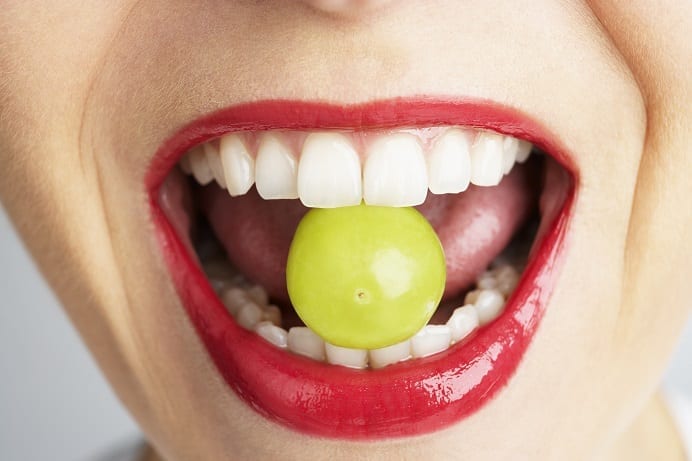
Don’t let your gum disease or bruxism remain unresolved because loose teeth will eventually completely detach from your jawbone and gums unless you address the problem ASAP. Treatment can improve your oral and dental health. Proper maintenance to avert risk can also promote healing and strengthen your teeth when push comes to shove.
Although preventing loose teeth is easier said than done, there are ways for you to reduce your risk regardless. Here are the measures you can do in order to guarantee you have better gum health and solidly supported teeth when push comes to shove.
- Stop smoking
- Floss once a day
- Monitor and control your diabetes
- Brush your teeth carefully twice a day
- Wear a bite splint to prevent bruxism during sleep
- Learn about medications that can impact the teeth
- Wear customized mouth guard during sports like boxing
- Regularly visit your dentist for dental check-ups and cleanings
- Take doctor-prescribed health supplements like minerals and vitamins to help prevent osteoporosis
It’s alarming to have loose teeth. However, a dentist can restore your smile and solid teeth support by figuring out what caused the looseness then reverse the condition or using implants or dental bridge for treatment. However, even though dental prosthodontic techniques are useful, it’s crucial to treat the primary cause of tooth loss first and foremost. You should also take the needed steps to prevent further loosening when push comes to shove.
Outlook and Loose Teeth Prevention
Treatment happens once the dentist identifies the cause for your loose teeth. If you’re suffering from gum disease, you’ll have to undergo deep cleaning involving scaling, debriding, and root planing to remove hardened plaque that collected under your gums and teeth. Deep cleaning typically involves scaling or carving out the diseased tissue from years of neglect in order to allow your gums and teeth to heal and rebuild themselves.
If the teeth are severely loose, the dentist might recommend tooth removal so that it could be replaced with a bridge or dental implant. As for loose teeth due to trauma, it might not be preventable but you can reduce the risk of the trauma by wearing mouth guards when doing sports like boxing, wrestling, MMA, martial arts, American football, soccer, or any full-contact activity.
In Conclusion

If you were to catch having loose teeth early, you can still save them from falling off altogether. After all, dentures take a lot of getting used to and dental implants are quite prohibitively expensive. There are treatments available to help heal the periodontal ligaments that keep your teeth in place. It’s important to have your loose teeth treated right away, because they’re the sign of the dental malady known as periodontal disease.
You should also observe regular dental hygiene practices like brushing your teeth twice a day, gargling with mouthwash, and flossing. After all, an ounce of prevention is even better than a pound of cure. Contact Thantakit to learn more about the treatment and prevention of loose teeth among adults.
Thantakit International Dental Center is Thailand’s longest established dental center. Situated in Bangkok, our clinic is renowned across the world as a destination for world-class dentistry, with most of our patients flying to us from Australia.
Please contact us today and get a FREE dental consultation.



